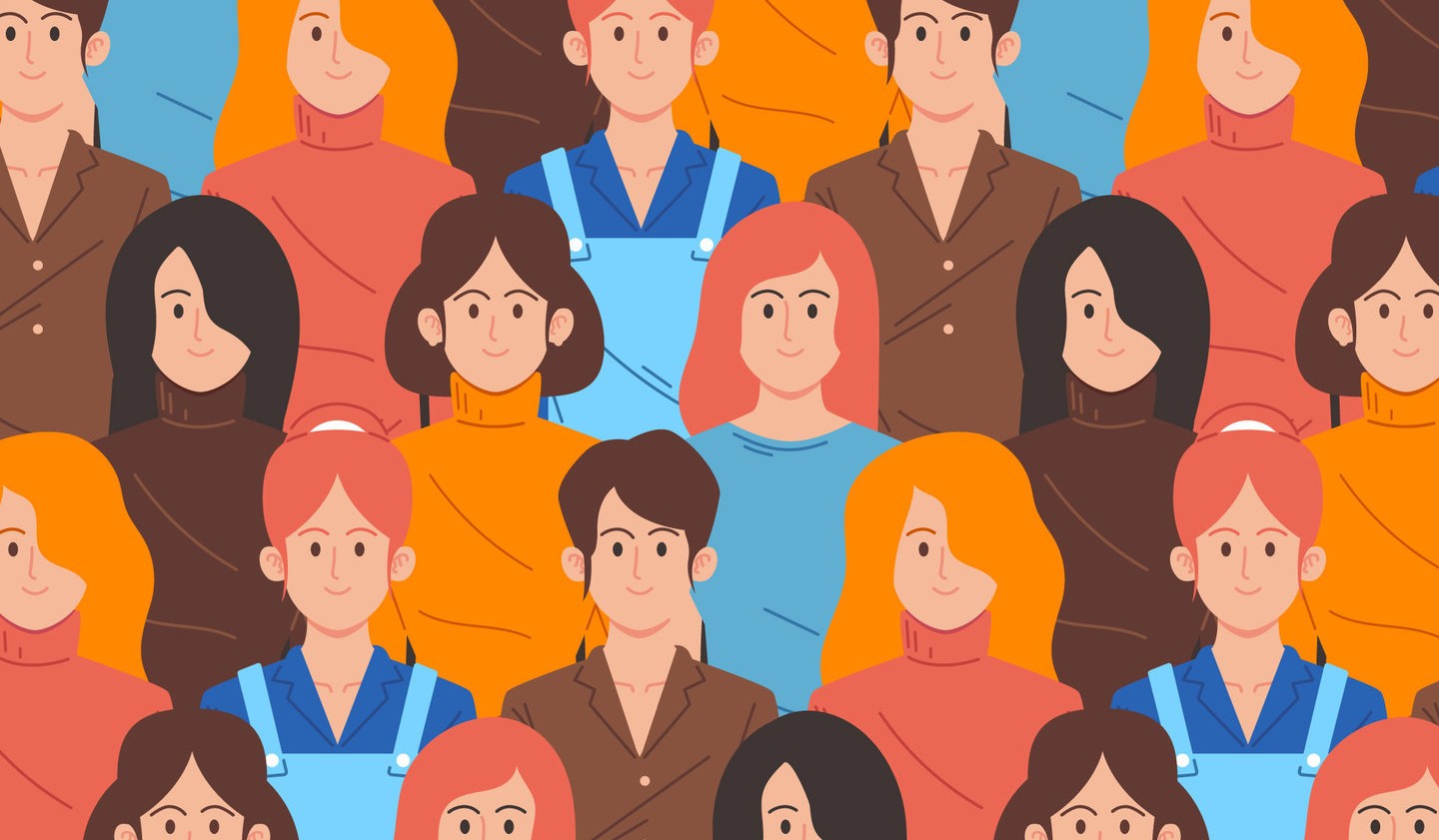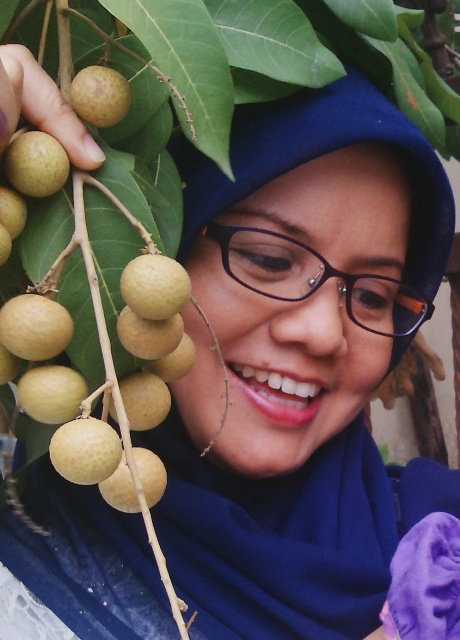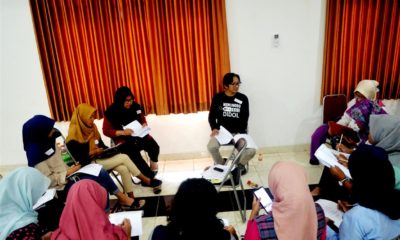Opinion
PKS Bill and Efforts to Protect Survivors
Published
4 years agoon
By
Mitra WacanaOleh Imelda Zuhaida (Director Mitra Wacana WRC)
Efforts to resolve the case of sexual harassment experienced by one of the female students while conducting KKN recieved many opinions from various groups because it was considered unfair for the survivors. Besides regretting the university’s response when they first learned of the problem, it was also considered sad because it ignored the demands of the survivors, namely that HS was expelled from the university. The agreement was signed on Monday, February 4, 2019, by three parties: Agni, HS, and Panut, witnessed by the UGM Faculty of Social and Political Sciences Dean Erwan Agus Purwanto, the UGM Engineering Dean Nizam, HS’s father, and the victim’s lawyer, Sukiratnasari. Finally, the meeting was considered by some as a sign that the rape against Agni was considered “over”.
As a writer, I cannot imagine what Agni’s psyological condition was when she learned of the meeting. She may have had feelings of anger, disappointment, hatred and annoyance. As an education provider, the University should prioritize the perspective of survivors as a form of protection for their students or accountability for educational institutions. Therefore, it is not surprising that there are some community members and social activists who say that the efforts and process of resolving this case may not be said to have been viewed from a perspective of justice for the survivors. If this happens, then this chain of violence will continue because of the absence of sanctions for perpetrators under the pretext of protecting the name of a university.
Is the case over?
Efforts to resolve the Agni case tend to ignore the rights of Agni as a survivor and priortise the reputation of the university. When fighting for rights, it is considered to defame the University. From this context there is clearly a power relationship between the University and survivors, which occurs when the authority makes intimidative efforts against survivors. In this context the issue of power relations should be a factor that needs to be analyzed and received attention when trying to criticize the case above. The convoluted and unclear bureaucratic tendency is one of the survivors choosing silence for fear of being “blamed”, given the culture of victim-blaming in the community, including within universities.
Likewise, the relationship between perpetrators and survivors. In the analysis of gender-based violence, power relations and patriarchy are usually always dominant when there are cases of sexual violence; whatever form it comes in. In patriarchy, men assume that they have a higher position than women and feel stronger and have power over women. Instead, women are considered weak, seen as sexual objects and inferior. With this assumption, men feel as if they have the right to do whatever they want without regard to women’s rights.
Whether consciously or not, this patriarchal culture has a tremendous negative impact on the fabric of society, one of which is the construction and mindset that the role of men is closely related to ego masculinity, which states that if power is in the hands of men then women are considered subordinate, may be underestimated. Men feel stronger and tend to have the freedom to do anything to women, including sexual harassment. Isn’t this terrible?
Survivors protection measures.
The case of sexual harassment experienced by Agni, is one of the many cases of sexual violence that is happening. Sexual harassment behavior is coercion of the will that is degrading, insulting, belittling women. The crime of sexual harassment causes extreme suffering for women as survivors. Survivors experience extreme physical and psychological suffering.
The rise of cases of sexual violence both at the University and outside the University shows a fairly high number. In 2017, the Central Statistics Agency (BPS) published that around 28 million Indonesian women experienced violence and most of it was sexual violence (Kompas, 31/10/2017). For this reason, women activists and the National Commission for the Protection of Women and Children (Komnas Perempuan) have long struggled to break the chain of sexual violence by various means. For example, by increasing the capacity of women through gender justice education, workshops, seminars, FGDs, gatherings and discussions relating to the prevention of sexual harassment.
One strategy taken is to encourage the issuance of special regulations on sexual harassment. The current regulations only cover acts of molestation. Therefore, Komnas Perempuan encourages the acceleration of discussions on the Draft Law on the Elimination of Sexual Violence (RUU-PKS). This PKS bill has been conceived and fought for for five years. It has gone through several processes, including: reading academic texts, various workshops, discussion forums, to peaceful actions, but has not yet been ratified.
From various information we can see, so far survivors of sexual violence have been more experienced by women, children and other vulnerable groups. Therefore it needs to be a priority to get protection from the state so that there is no recurrence and so the country can be free from any form of sexual violence. With the existence of the PKS Bill, it is expected to strengthen women’s awareness and courage to fight all forms of violence. If there are women who experience sexual violence, in reality they are experiencing multiple layers of violence; verbal, physical and psychological violence and even social violence.
One of the reasons why the PKS Bill was issued because the form and quantity of cases of sexual violence are increasing, even developing. However, Indonesian law has not been systematically and comprehensively able to prevent, protect, empower and restore survivors of sexual violence. In the effort to fulfill the rights of survivors including the right to treatment, protection, and recovery aimed at preventing the recurrence of sexual violence and the continuing impact on survivors.
In addition, it also fosters community understanding and awareness to eliminate sexual violence. This is a form of anti-violence and protection for survivors. The writer believes that the PKS Bill will provide a clear legal reference. More than that, it will provide benefits for survivors of sexual violence, for example the existence of rules regarding the fulfillment of the rights of survivors to the physical, psychological protection, recovery of survivors after the event, including the legal process.
Currently the PKS Bill is still under discussion in the DPR. There are a number of notes according to the DPR, especially Commission VIII, which considers that the PKS Bill disturbs the order in marital relations, risks being used by LGBT and is feared to be a justification for criminalization. Regardless of the process in the DPR, it is hoped that if it is appropriate it must be ratified immediately, so that Indonesian women have the legality to protect their dignity, rights and existence. Finally, it can be a clear reference in law enforcement of sexual violence cases, through which sexual violence can be handled. Hopefully….
Coordinator : Ruly
Editor : Wahyu Tanoto
You may like
News
Are American and Indonesian Women Really So Different?
Published
4 years agoon
7 February 2020By
Mitra Wacana
by Jacqueline Lydon – Volunteer internship Program Mitra Wacana
After growing up in the U.S., now living in Indonesia for about five months and interning at Mitra Wacana for three, I’ve been surprised at the similarities between conditions for women in the two countries.
On the surface level, women in the U.S. and Indonesia may seem like polar opposites.
When comparing the two, people tend to focus on the behaviors and appearances of women. Women are judged for how they dress, how they act, and how independent they are, for example.
Americans might judge Indonesian women for dressing conservatively, staying in the domestic sphere, and being seemingly submissive to their husbands. Meanwhile, Indonesians might judge American women for not covering their bodies, being too sexual, not focusing on domestic roles, or being too loud and demanding.
What I’ve noticed since being here is first, that these differences are less noticeable than I had thought, and second, that they seem to stem from differences in cultures and societal norms. There are different ways of understanding gender and gender roles, yet women in both America and Indonesia want safety, respect, and to have a voice.
There are many similarities between women’s behaviors and struggles in the two countries.
- 51.9% of Indonesian women are in the workforce, compared to 57.1% of U.S. women
- 17.4% of the Indonesian parliament is female, compared to 23.9% of the U.S. legislature
- The first Indonesian woman was elected president in 2001, while a woman has never yet been president in the U.S.
- The first female supreme court justice in Indonesia, Sri Widoyati Wiratmo Soekito, was inaugurated in 1968, while the first woman to join the U.S. supreme court was Sandra Day O’Connor in 1981, about 15 years later.
There are many issues – from sexual harassment to rape – that have a widespread impact on women in both countries, but it’s hard to have accurate statistics because many women do not or can not report these incidents. But based on what is reported, it’s clear that these are major issues in both countries.
- 3 out of 5 Indonesian woman and 81% of American women have experienced sexual harassment
- 15% of Indonesian women and more than 1 in 3 American women report being a victim of sexual violence
- 16% of Indonesan women and about 25% of women in the U.S. have reported being a victim of intimate partner violence (physical, sexual, or psychological violence from a partner or spouse)
With two countries in which women’s attitudes and behaviors seem so different, it’s surprising how similar women’s successes and struggles are.
Just last year, a poll in the U.S. found that only 29% of American women identify as feminists. (Feminist: someone who believes men and women should have equal rights.) In both countries, there are both feminist movements and anti-feminist movements (In the U.S., “meninism”; in Indonesia, “Indonesia tanpa feminisme”). In both, women’s voices are suppressed; women who advocate for themselves are often seen as too demanding, and their problems are ignored.
Why is there so much judgement for women’s choices in both countries?
Part of this is based on stereotypes, which are continually built up about women who act differently. Women in each country are taught that their culture’s roles, behaviors, and values are the better choice, and if only they stick to that, they will avoid the problems faced by women in different cultures. For example, women in the U.S. are taught that being more assertive will help them achieve more political representation, and women in Indonesia are taught that behaving modestly will help them avoid sexual violence or harassment. Yet the similarities in statistics prove that it is not the behaviors of women that cause these problems, and neither culture’s prescriptions for women will solve the issues.
Of course, there is not one simple answer for these systemic issues. But, the main culprit of sexism around the globe is the patriarchy – the system that has been constructed to empower men and subjugate women. It is this system that has created this notion of victim blaming – to judge and blame women for their own oppression instead of the overarching system.
Instead of looking at the choices of women or judging them, we should look at the system of patriarchy that is prevalent in both countries.
I think we need to stop focusing on the behavior of women and instead focus on the way that society judges and oppresses all women, and then build solidarity to break down those systems. The ideal of how a woman should be and should act may be different in both cultures, but it is universal that women should be free from violence and treated with dignity and respect.
Editor: Arif Sugeng W

Mitra Wacana Terima Penghargaan Hassan Wirajuda Pelindungan Award 2023 dari Kementrian Luar Negeri RI

Mitra Wacana Jalin Mou Kolaborasi bersama Komisi Informasi Daerah Yogyakarta
















